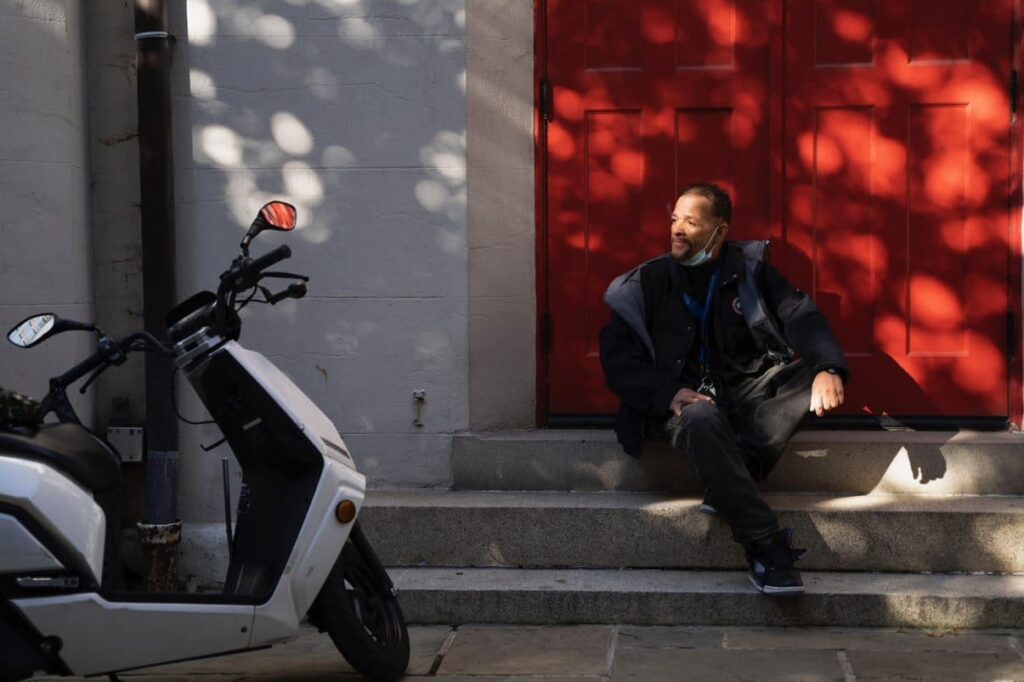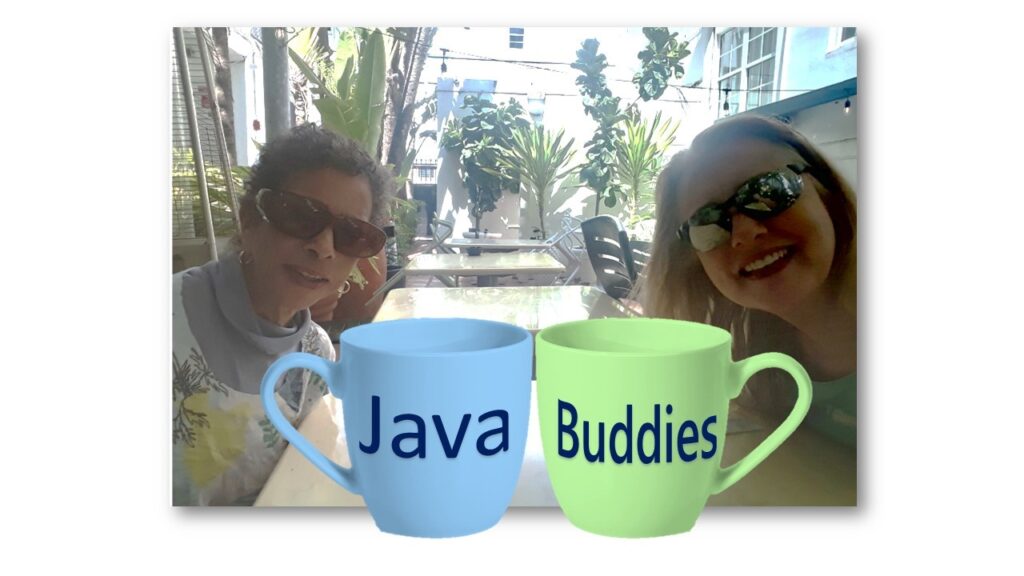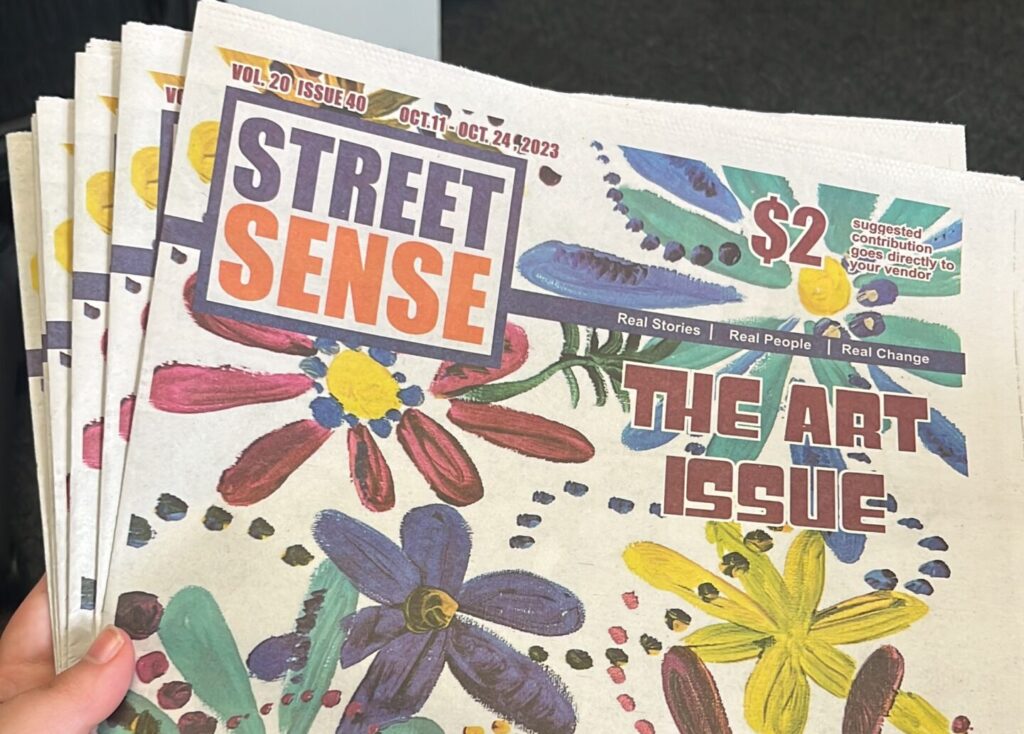Ayub Abdul, 70, Street Sense Media artist and vendor, died from complications with epilepsy on Feb. 2, 2021. He lived in Washington, D.C.
Born in New York City on Dec. 19, 1951, Abdul grew up in the Bronx and Manhattan before settling in the Washington region in the 1970s. Ever since Ayub Abdul was a young boy, he was naturally curious and would often venture into new neighborhoods, eager to learn more about the world around him, according to his sister, Divane Pitttman.
“He wasn’t a kid that would just sit down and watch TV,” Pittman said. “He was adventurous.”
Charming, rambunctious and playful as a child, Abdul had initially struggled with learning disabilities in his early life. But he overcame these challenges and grew up to become a polymath. He had a knack for mastering nearly anything he set out to learn, including how to speak Mandarin Chinese.
In 2007, Abdul had a chance encounter with a Chinese American woman and her family while he was working as a shoe salesman at Macy’s in downtown D.C. Upon meeting her, he soon discovered that her elderly father, who was from Shanghai, was lonely and needed someone to help him learn English. Abdul volunteered to spend his lunch break every day with the woman’s father for several years, trading informal Mandarin lessons for English. Before long, the two men developed a friendship that would culminate in his first trip to China in 2010.
He would later complete 7 to 8 more trips to China and, on one of these trips, he attended the wedding of his longtime language partner’s son as a guest of honor.
While Abdul could speak conversational Mandarin Chinese, he was also known for getting by in a smattering of other languages, surprising members of his family on occasion.
“In 2013, he came to Florida to visit me. And some people were downtown speaking another language with each other and he just started speaking to them, and then, they started speaking to him back,” his sister Althea Williams said. “And I was like, ‘Wow, he really knows how to speak this other language.’”
Abdul was always able to connect with people from all walks of life — regardless of cultural or language obstacles — a talent that no doubt helped him make sales as a newspaper vendor with Street Sense Media.
Williams attributes some of her brother’s entrepreneurial talents to his early upbringing. Growing up, their parents owned and managed a grocery store, and Abdul and his siblings helped with inventory and sales. But even as Abdul was successful at running his own business, he was also incredibly generous with his friends and family.
“He would come to my house and bring my kids things,” Williams said. “He bought my daughter her first boombox when she was around 6 years old.”
However, Abdul’s success with the newspaper extended far beyond his sales. He was perhaps better known for his literary work—the poems and articles he published with Street Sense Media.
“He was crazy about his poetry,” his close friend Terry Snead recalled. “He would just break out and write lines on all these little pieces of paper [he kept] in his pocket.”
Snead, who had previously been homeless for 10 years, said he met Abdul for the first time outside of St. Luke’s shelter nearly 20 years ago. But the two ended up developing a friendship after taking a cooking class together a few years later.
A former Black Panther, Abdul completed his GED in 2014 and also enrolled in classes at the University of the District of Columbia. Always eager to learn and develop new skills, Abdul also had become a practicing martial artist who taught tai chi in his spare time.
Snead said that he remembered at least one martial arts class where Abdul dazzled his students.
“He taught one or two of the classes at the senior program that he was involved in, and he taught tai chi,” Snead said. “And folks gave him a standing ovation. I mean, that guy was proficient.”
Abdul began his martial arts training about seven years ago, according to his sifu and instructor Raymond Wong.
“He came to class suited up with a kung fu outfit that he bought from a local gift shop,” Wong said. “Fully decked out from top to bottom.”
At first, Wong wasn’t quite sure what to make of Abdul and whether he would stick with the lessons.
“So, I was like ‘Oh, good. Here we go, we’ve got another one of these guys coming fully dressed up when they haven’t even learned anything yet,’” Wong said.
Little did Wong know, Abdul was serious and fully committed to learning. Over time, Abdul made steady progress with his training, eventually becoming proficient enough to instruct beginners in tai chi.
“He put a lot of time and effort into it,” Wong said. “And he really enjoyed tai chi.”
Throughout the years, Abdul had participated in various Chinatown community events for festivals and holidays, and participated in the lion dance as part of his kung fu training.
“He was always looking out for the community,” Wong said.
While Abdul was heavily involved in the local Chinese American community, he was also an outspoken advocate for people experiencing homelessness.
Penny Nance, a friend who knew Abdul for nearly 30 years, described him as a passionate, caring person who was always willing to go out of his way to help people.
Both Nance and Abdul served as speakers with the nonprofit National Coalition for the Homeless, raising awareness on issues related to homelessness and poverty.
“He was always someone I got a hug from or gave a hug to,” Nance said. “He really cared about being a homeless advocate and cared about being a good friend.”
Abdul’s son Martin Pointer also has fond memories of his father, like the time he watched him interact with his grandson for the first time.
“When he met my son, he started to teach my son how to count in Mandarin and teach him some words,” Pointer said. “So, I got to know him as a teacher.”
Over the past three years, the two had developed a close relationship with one another, and would often exchange text messages and talk to each other on the phone.
“We had a lot of plans,” Pointer said. “I’m just sad that we won’t be able to carry them out… but I’m happy that he’s no longer suffering.”
Abdul is survived by Pointer and his grandchildren Brandon and Kezia Pointer, in addition to his sisters Marlene Worrell, Williams and Pittman and his half brother Geno Foster. He is also survived by his many beloved nieces and nephews: Langston Williams III, Lisa T. Lee, Terryayne Pittman, Ulyrichia Pittman, Kacey Crews, Yvette Edwards, Nepreil Foster and Damali Morgan. He is preceded in death by his elder brother Geno Worrell Jr., his niece Lacey A. Williams, and his parents Geno and Lillie Worrell.








